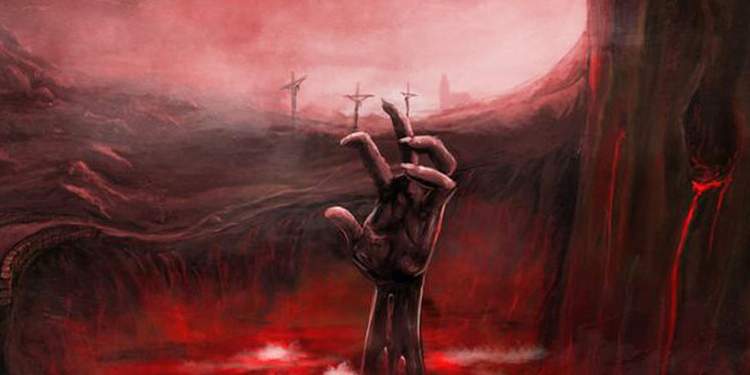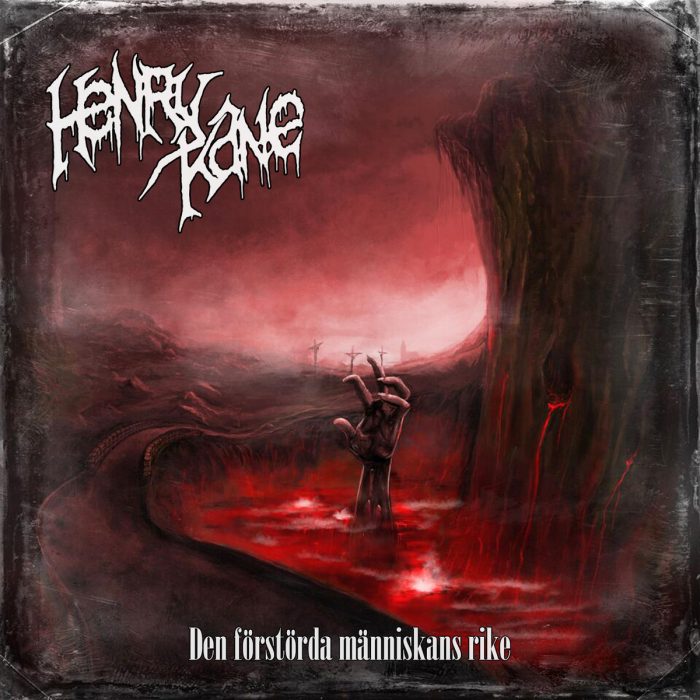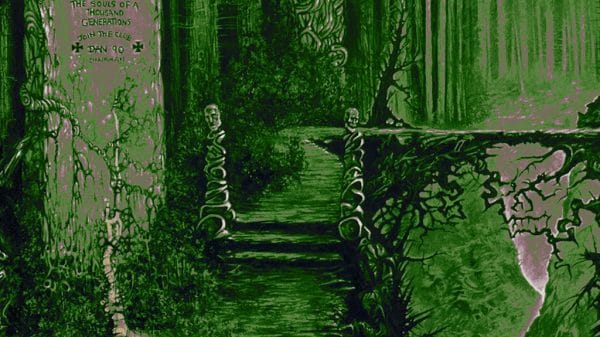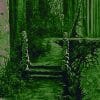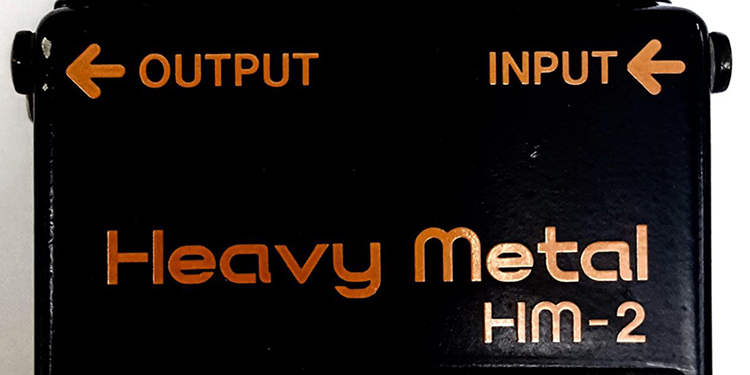Henry Kane is the solo vessel of Jonny Peterson, mainly known from Wombbath, along with a myriad of other projects. Peterson’s goal with Henry Kane appears to be a reinterpretation of Swedish, old-school death metal, with a few interesting twists and turns. To that end his debut album, Den Forstorda Manniskans Rike takes a few bold steps in other areas.
However, the air is predominantly tainted by the Swedish death metal sound, coming across in the production choices and the different sounds incorporated by Peterson. The guitars are the primary source of this era defining sound, reeking with the rotten sense of distortion made famous by the likes of Entombed, Grave and Dismember, but taken to a further extreme. This is some seriously loud stuff, with the distortion squashing the dynamics, resulting to an impressive sound, which however comes with a few downsides. Usually this lack of dynamics results in a fatiguing factor to the listener, but Henry Kane balances it out with a work that comes in short attack bursts, and with fast changes.
The uncommon aspect here is the introduction of crust and grindcore elements alongside the Swedish heritage of the record. This is a fairly unusual operation, given that Swedish death metal paid more attention to producing mid-tempo grooves that acted as hooks, rather than the faster paced, darker American death metal style. But Peterson organically layers these influences resulting in a boost of energy and urgency coming from the crust approach, where a primal quality takes over and anthemic backing vocals join in. Similarly the grindcore injection heightens the aggression and speed presented here, with the blastbeats coming in ample numbers, causing the whole tracks to flare up in a hellish blaze.
The album retains an interest throughout due to the fast pace, energy and navigation of Peterson through the various changes. Even with the production being messy, and elements being obscured by the sheer force of the guitars, for instance in “Bara Hat,” the work retains a sense of mystique, which is partly aided by the addition of a horror-like theme (let’s not forget what the namesake of the band is,) found in its most representative form in Death Breath releases. It all works in producing a record that carries the hellish element of the Swedeath scene, and at the same time pushing the boundaries further with some unconventional means, which are more than welcome. It is a great first step, and it looks like the path Henry Kane has taken has more to give in the future.

